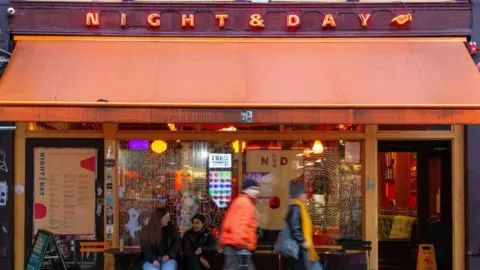### Proposed Reforms for Pubs and Music Venues
In a significant move aimed at revitalizing the struggling pub and music venue industries, the UK government has proposed new regulations that intend to reduce the number of noise complaints directed at these establishments. This measure is part of broader planning and licensing reforms aimed at making it easier to introduce new bars, cafés, and outdoor dining spaces in city centers, particularly in areas with disused shops.
### Reducing Barriers for New Establishments
According to the proposed reforms, developers aiming to build residential properties near established pubs or music venues will be required to invest in soundproofing measures. Additionally, permissions for new hospitality businesses, including al fresco dining arrangements, will be expedited. This initiative is positioned as a proactive approach to counteract the continuous decline in the traditional pub industry, which has been evident over the past two decades. The government hopes that by easing these restrictions, they can stimulate economic growth in England and Wales by fostering a more vibrant hospitality scene.
### The Ongoing Decline of Pubs
Despite these efforts, industry experts are sounding alarms regarding the ongoing crisis in the pub sector. The British Beer and Pub Association has reported a steady decrease in pub numbers since the year 2000, with an alarming forecast that approximately 378 pubs could close across England, Wales, and Scotland in 2025 alone. Such closures could lead to more than 5,600 direct job losses, highlighting the urgent need for effective intervention.
### Responses from Political Parties
The political landscape surrounding these proposed changes reveals a stark divide. Labour representatives, such as Exchequer Secretary to the Treasury James Murray, assert that the reforms aim to eliminate cumbersome regulations. Murray contends that reducing excessive bureaucracy is crucial for economic growth, even while acknowledging the repercussions of the government’s previous tax policies on the hospitality sector.
Conversely, members of the Conservative Party blame tax policy for exacerbating woes in the hospitality industry, arguing that Labour’s proposed changes may not address the fundamental issues at play. Shadow Business Secretary Andrew Griffith criticized Labour for undermining the very industry it now claims to support, pointing to controversial measures like increased business rates and an added Jobs Tax as detrimental to the sector.
### Regrettable Closures and Community Impact
Several iconic pubs and music venues have found themselves at the center of serious complaints leading to potential closures. Emotional campaigns have sprung up in various cities in response to noise complaints threatening beloved establishments. For instance, the Moth Club, located in East London, ignited public interest by launching a petition against a proposed residential block that could jeopardize its operations.
In another instance, Manchester’s Night and Day Café underwent a protracted legal struggle with the local council over noise complaints attributed to a neighboring residential property. The venue ultimately secured permission to continue operating as a nightclub but imposed noise-limiting measures to mitigate conflicts.
### Latest Industry Developments
The tension within the hospitality sector has been further exacerbated by economic pressures, as reflected in the recent announcements made by Brewdog, a major pub chain, regarding the closure of ten bars across the UK. These closures were cited as a response to rising operational costs and intensifying regulations.
Chancellor Rachel Reeves emphasized the importance of pubs and bars in British culture while endorsing the government’s consultation on the proposed regulatory changes. Her statement encapsulated the administration’s commitment to dismantling “clunky, outdated laws” that stifle the hospitality sector. She assured industry stakeholders that a renewed focus on outdoor drinking, dining, and street parties would be prioritized, benefitting the community year-round.
### Looking Ahead
As the consultation progresses, industry stakeholders, including pub and music venue owners, will undoubtedly be looking keenly at the outcomes. The battle between nurturing local economies and preserving the operational viability of these cherished establishments remains at the forefront of this evolving conversation around policy reform. The importance of finding a balance that ensures the survival of pubs and venues while also respecting the needs of local residents is imperative for the future of Britain’s vibrant hospitality scene.











